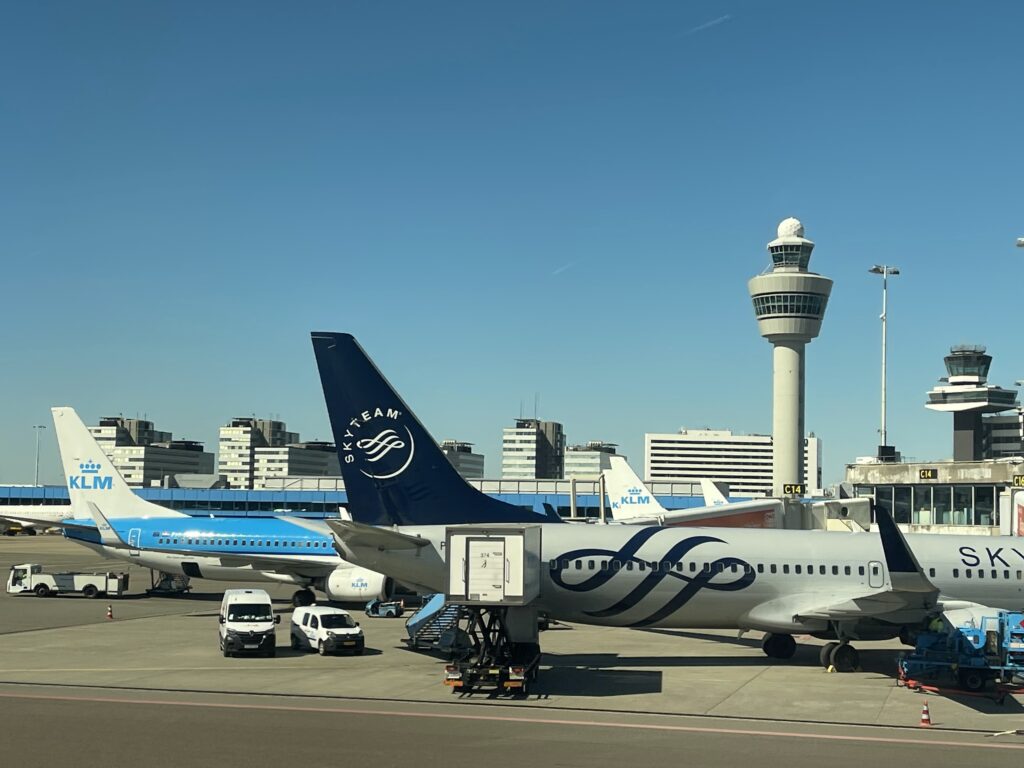The plan to reduce noise pollution at Schiphol next year has been canceled. Nature and environmental organizations, including the North Holland Nature and Environment Federation, Natuur & Milieu, Milieudefensie and Greenpeace Netherlands, have expressed their frustration and disbelief about the postponed shrinkage of Schiphol in a joint statement.
The recent decision by Infrastructure Minister Mark Harbers to temporarily suspend the plan to limit the number of flight movements at Schiphol to 460.000 next summer season has provoked a wave of reactions. This development, announced in a letter to the House of Representatives, comes amid increasing pressure from the United States and Europe, and marks an important moment in the discussion surrounding aviation, the environment and the living environment.
The response from nature and environmental organizations is one of unfiltered anger and disbelief. Organizations such as the North Holland Nature and Environment Federation, Natuur & Milieu, Milieudefensie and Greenpeace Netherlands express their frustration about the postponement of the shrinkage of Schiphol. They call the decision 'shocking', highlighting deep-seated concerns about environmental impacts and the need for sustainable developments within the aviation sector.
The decision is also not well received by residents of Schiphol. They have been confronted for years with the consequences of intensive air traffic, such as noise pollution and environmental impact. Postponing the shrinkage, although prompted by legal objections, is seen as a missed opportunity to take concrete steps to reduce this nuisance.
In his letter to the House of Representatives, Minister Harbers acknowledges the complexity of the situation and the disappointment that the postponement entails. He points to legal objections as the reason for the suspension, but continues to emphasize that the government is determined to restore the balance between the airport and the surrounding area in the longer term.

The decision of outgoing Infrastructure Minister Mark Harbers to postpone the shrinkage of Schiphol has led to a complex situation in which environmental considerations, international pressure and local interests come together. This development, which appears to be a direct response to pressure from the United States and the European Union, has sparked outrage among environmental organizations and local communities alike.
Minister Harbers acknowledges the complexity of the situation and the disappointment that the postponement entails for the immediate vicinity of Schiphol. However, he emphasizes that the government remains committed to restoring the balance between the airport and its living environment. This means that, although the immediate downsizing plans have been suspended, the long-term goal of shrinking Schiphol to protect nature, climate and the living environment remains intact.
This situation underlines the challenges facing the aviation sector, with the balance between economic interests, environmental responsibility and community interests playing an increasingly central role in policy making. The decision of the outgoing cabinet to put the downsizing plans on hold for the time being can be seen as a tactical move in a larger playing field in which international pressure, legal considerations and domestic interests intersect.

cause
On November 2, the American Department of Transportation (USDOT) made a decision stating that the Netherlands infringement would make on the EU-US Open Skies treaty. USDOT's decision can be seen as the first phase of rehabilitation. They do this by relying on American competition regulations. In a second phase, more far-reaching countermeasures can be announced.
concern
The United States specifically expresses its concerns about the way in which the Netherlands applies the Balanced Approach procedure in the implementation of the Schiphol Decision, both in Track 1 and in Track 2. This approach, which is intended to strike a balance between the growth of the aviation and its environmental impacts is considered not to be properly followed by the US. Another point of concern concerns market access for new entrants to the aviation sector, a concern that is partly motivated by the antitrust immunity granted to the Blue Skies Joint Venture.
These concerns from the US side are further reinforced by a letter from European Commissioner Adina Vălean, received on November 13. This letter expresses serious concerns about the Dutch approach in Track 1 of the Schiphol Decision and the failure to follow the Balanced Approach. The European Commission reserves the right to initiate infringement proceedings due to possible conflict with EU law. The Dutch government is called on to consider all possible steps to act in line with EU law.
reconsider
These developments indicate considerable international pressure on the Netherlands to reconsider its policy regarding Schiphol. The criticism from both the United States and the European Union emphasizes the need for the Netherlands to respect international agreements and guidelines, especially when it comes to aviation, the environment and market access.



